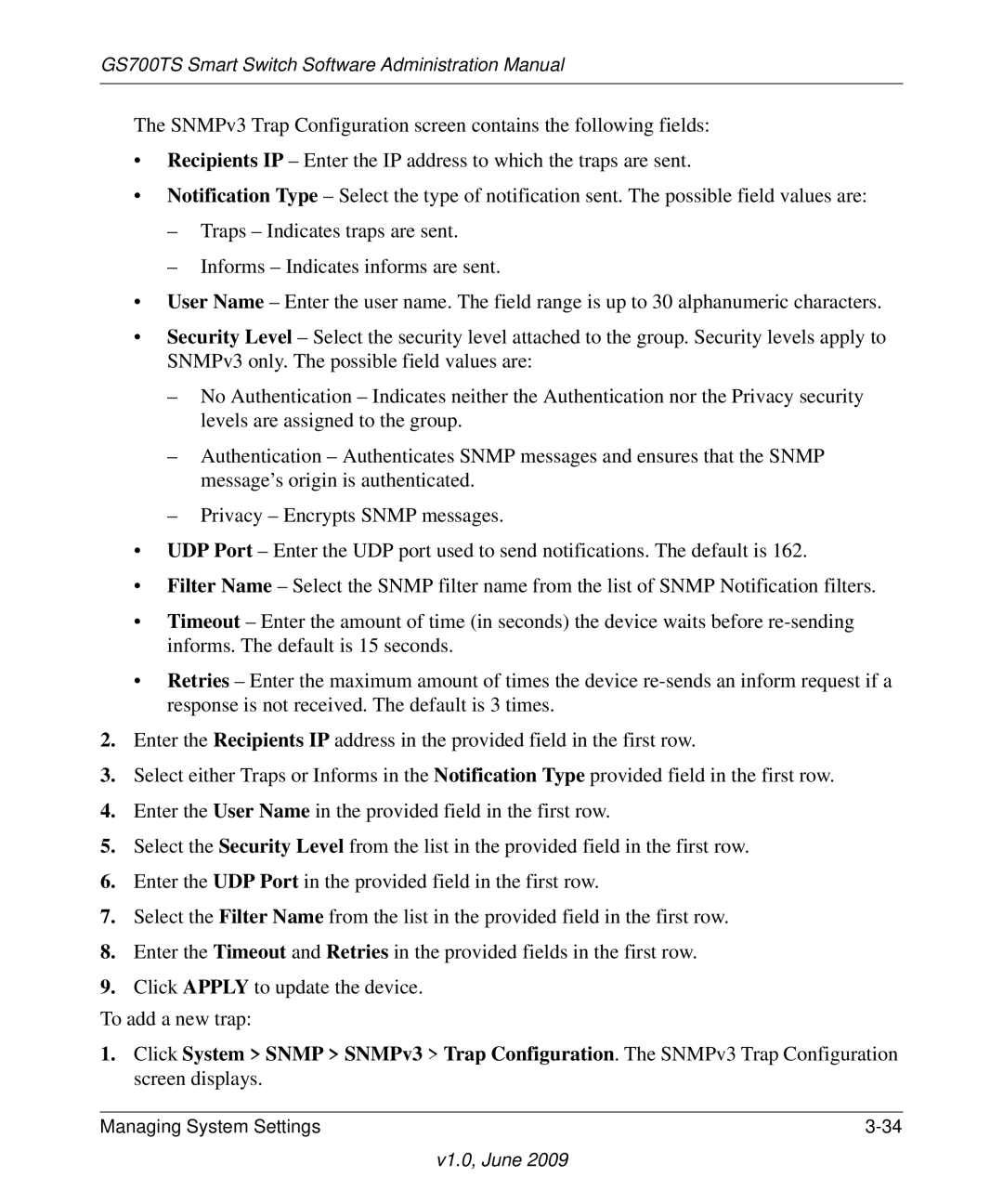GS700TS Smart Switch Software Administration Manual
The SNMPv3 Trap Configuration screen contains the following fields:
•Recipients IP – Enter the IP address to which the traps are sent.
•Notification Type – Select the type of notification sent. The possible field values are:
–Traps – Indicates traps are sent.
–Informs – Indicates informs are sent.
•User Name – Enter the user name. The field range is up to 30 alphanumeric characters.
•Security Level – Select the security level attached to the group. Security levels apply to SNMPv3 only. The possible field values are:
–No Authentication – Indicates neither the Authentication nor the Privacy security levels are assigned to the group.
–Authentication – Authenticates SNMP messages and ensures that the SNMP message’s origin is authenticated.
–Privacy – Encrypts SNMP messages.
•UDP Port – Enter the UDP port used to send notifications. The default is 162.
•Filter Name – Select the SNMP filter name from the list of SNMP Notification filters.
•Timeout – Enter the amount of time (in seconds) the device waits before
•Retries – Enter the maximum amount of times the device
2.Enter the Recipients IP address in the provided field in the first row.
3.Select either Traps or Informs in the Notification Type provided field in the first row.
4.Enter the User Name in the provided field in the first row.
5.Select the Security Level from the list in the provided field in the first row.
6.Enter the UDP Port in the provided field in the first row.
7.Select the Filter Name from the list in the provided field in the first row.
8.Enter the Timeout and Retries in the provided fields in the first row.
9.Click APPLY to update the device.
To add a new trap:
1.Click System > SNMP > SNMPv3 > Trap Configuration. The SNMPv3 Trap Configuration screen displays.
Managing System Settings |
